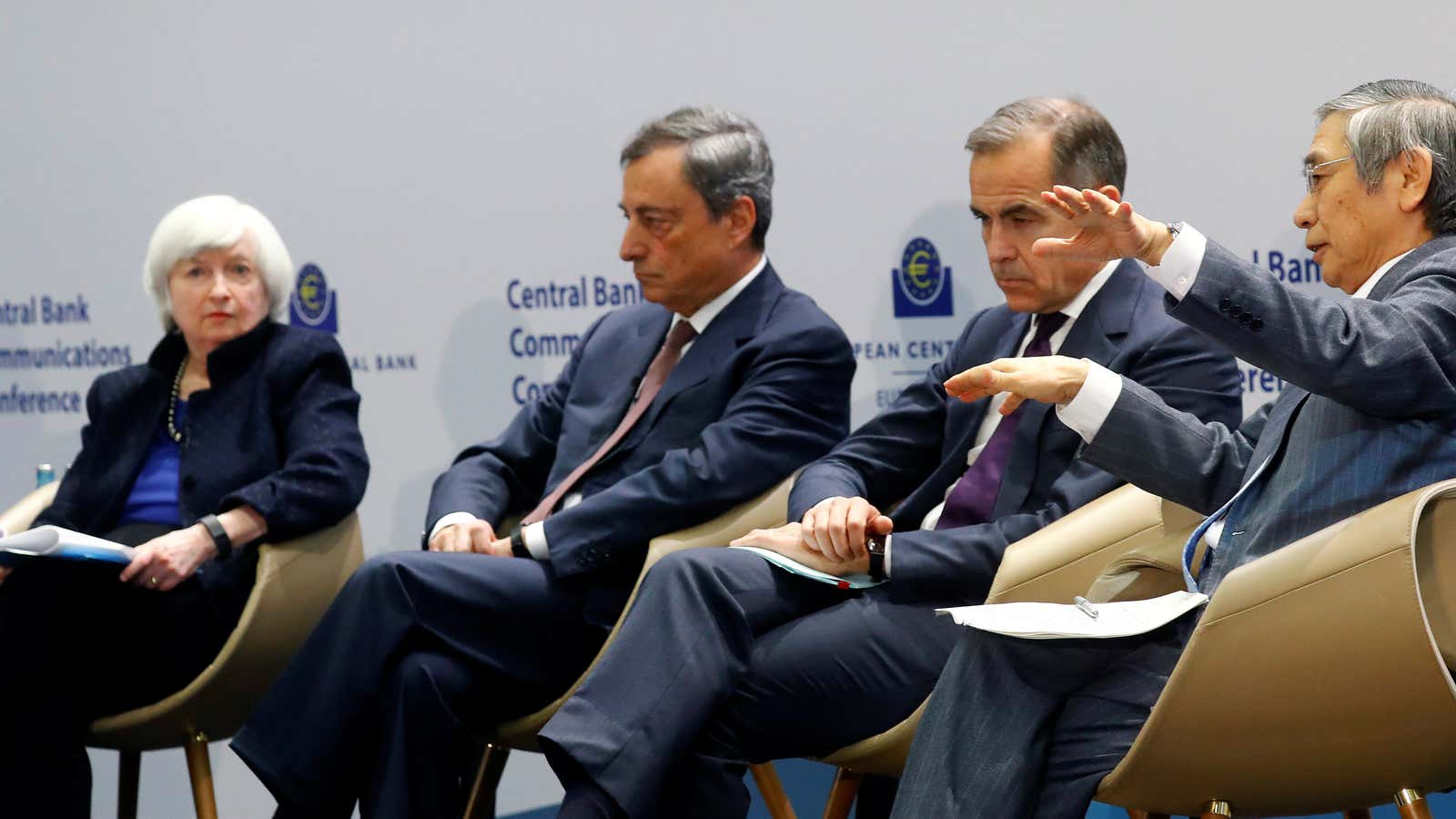Everyone has one foot out of the door, trying to wrap up their work before the holidays, and the same applies to central bankers. This week, no fewer than 20 central banks around the world will make decisions about interest rates. The big day is Thursday (Dec. 14), when there will be 12 rate-setting decisions, the single busiest day of the year.
Meeting this week are the central banks of—deep breath—Argentina, Iceland, Georgia, Croatia, the US, euro zone, Switzerland, Ukraine, Indonesia, Philippines, Turkey, the UK, Norway, Fiji, Mexico, Colombia, Chile, Peru, Mongolia, and Russia.
Most of these meetings will pass without making much news, but there are a few to watch out for. On Wednesday (Dec. 13), the US Federal Reserve is expected to raise interest rates for the third time this year, by 25 basis points to 1.25%-1.5%. It will also be Janet Yellen’s last major Fed meeting before Jerome Powell takes over as chair. Yellen has deftly steered the US economy out of crisis and it will be left for Powell to continue this effort as the Fed winds down its balance sheet with more than $4 trillion in assets acquired as part of emergency stimulus measures.
Markets also expect the Turkish central bank to raise its funding rate for banks a day later in an effort to tame inflation. Policymakers have been in battle with president Recep Tayyip Erdogan, who thinks higher interest rates lead to higher levels of inflation, for some reason. Last month, the Turkish lira dropped to a record low against the dollar after Erdogan said that the bank’s officials were on the “wrong path.”
Meanwhile, there’s a chance the Mexican central bank will also raise rates. But uncertainty about the negotiations over the future of Nafta might make the central bank stay put.
If you’re a fan of the dry, circumspect speech that central bankers elevate to an art form, this week is like Christmas come early. And even if not a lot happens with interest rates, this calm won’t last for long. Citigroup and JPMorgan economists predict average interest rates across advanced economies will rise by at least 1% next year, which may not sound like a lot but would be the biggest increase in more than a decade.
